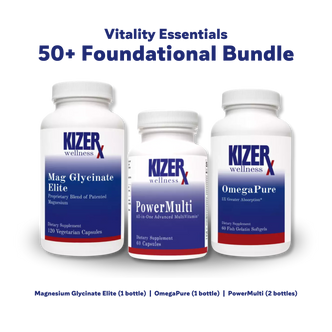If you’ve been hearing more about uric acid lately, you’re not alone! While most people associate it with gout, research is uncovering its role in metabolism, inflammation, and overall health. So, what exactly is uric acid, and why should you care? Let’s break it down!
What is Uric Acid?
Uric acid is a natural waste product produced when your body breaks down purines—compounds found in certain foods like red meat, seafood, and alcohol. Normally, your kidneys filter uric acid out of your blood, and you eliminate it through urine. But when levels get too high, problems can arise.
The Link Between Uric Acid & Health Issues
Elevated uric acid levels (hyperuricemia) aren’t just about gout. Studies now suggest it can contribute to:
🔴 Metabolic Syndrome – High uric acid is linked to obesity, insulin resistance, and high blood pressure.
🧠 Brain Health – Research is exploring connections between uric acid and neurological conditions.
🔥 Inflammation & Joint Pain – Even if you don’t have gout, high uric acid can trigger low-level inflammation.
🩸 Heart Disease & Kidney Function – Excess uric acid may increase the risk of hypertension and kidney disease.
How to Keep Uric Acid in Check
The good news? Lifestyle and diet changes can help regulate uric acid levels. Here’s how:
- Eat More Alkaline Foods – Load up on veggies, fruits, and whole grains to support kidney function.
- Limit High-Purine Foods – Reduce red meat, shellfish, and processed foods
- Fructose - Reduce intake High Fructose Corn Syrup, sugars, sugary drinks.
- Stay Hydrated – Water helps flush out excess uric acid.
- Exercise Regularly – Movement supports healthy metabolism and reduces inflammation.
-
Try Natural Support – Lemon water, tart cherry juice, and fiber-rich foods may help lower levels naturally.
Supplements to Support Healthy Uric Acid Levels
In addition to lifestyle and diet changes, certain supplements can help maintain healthy uric acid balance:
🔹 Tart Cherry Extract – Shown to help reduce uric acid and support joint health.
🔹 Vitamin C – May lower uric acid levels by improving kidney function.
🔹 Magnesium – Supports kidney health and helps with uric acid excretion.
🔹 Quercetin – A powerful antioxidant that may help regulate inflammation and uric acid levels.
🔹 Apple Cider Vinegar – May support kidney function and help regulate uric acid levels.
🔹 Inositol – Aids in metabolic health and may support balanced uric acid levels.
🔹 Probiotics – Support gut health, which plays a role in breaking down and eliminating uric acid.
🔹 Celery Seed Extract – Traditionally used to promote kidney function and reduce uric acid buildup.
Final Thoughts
Uric acid is more than just a gout concern—it plays a role in whole-body health. Keeping your levels in check can help support inflammation, metabolism, and overall well-being. If you're curious about your uric acid levels, consider testing and making simple dietary, lifestyle, and supplement tweaks for better health!
👉 Want to learn more? Follow for more insights on metabolic health, inflammation, and nutrition!


